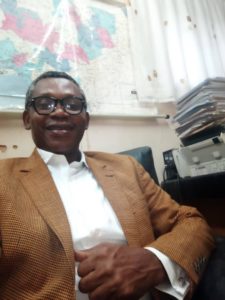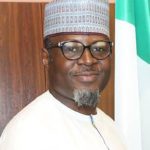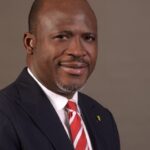
Aviation industry stakeholders have chided the Nigerian Civil Aviation Authority (NCAA) over what they described as the lack of effective economic regulation of Nigerian airlines.
This, they stressed, is attributable the short life span of Nigerian carriers.
According to industry analysts, the average lifespan of 10 years of Nigerian carriers is a s a result of their poor financial health stressing that many Nigerian airlines are not well capitalized.
Nigerian airline, they added, easily succumb to financial shocks when they go for major checks or when a few of their aircraft are grounded at the same time.
The analysts alleged that some airlines do not pay their workers on time adding that such situation could be precarious because of the sensitive nature of flight operations.
But the General Manager, Public Affairs, NCAA, Sam Adurogboye is aghast by the assumption of some industry stakeholders that the regulatory authority is not
conducting effective economic regulation of the airlines.
According to him, “If we are not effectively carrying economic regulation of the airlines, planes will be dropping from the air. I always said that those who believe that we are not regulating the industry economically should come and tell us what we should do. We monitor the airlines to know their financial health. If we see a red flag we report it immediately. The safety that we have is not by accident.”
Commenting, Former Managing Director of the Nigerian Airspace Management Agency (NAMA) and also former CEO of Aero Contractors, Captain Ado Sanusi said that NCAA has done well in its safety regulation but should continue to strive to do more, “because safety is not a destination, it is a continuum. While maintaining and improving on ensuring safety of flight operations, it should also enforce its economic regulation mandate.
“The Nigerian Civil Aviation Authority has not perfected its economic regulation, but this should not be done at the expense of its safety regulation. Economic oversight has not been well developed to have the processes for it to have an edge as safety oversight has done. So, NCAA should employ more people to look at the financial health of the airlines and you have to agree with me that good financial health of airlines translates to safety,” Sanusi said.
On his part, the Managing Director of Finchglow Travels and Chairman, Association of Approved Training Organisations, Nigeria, Bankole Bernard, acknowledged that NCAA has done well in the area of safety, remarking that safety is critical, “that is why the International Air Transport Association (IATA) has Operational Safety Audit (IOSA).
“The NCAA needs to start looking at the airlines beyond safety. I think, over the years safety has been the major problem, which I think we have been able to surmount as it were. Can we look into their commercials? Does their commercial make sense? Yes, their finances are part of their commercials because when they do not have money they may be tempted to cut corners in their maintenance schedule, thus threatening safety. So if you see that an airline is not financially strong, why you do now want to continue to put their safety at a compromise? So we need to look into their commercials, their finances to say yes, they are liquid enough to be able to keep the bird in the air, “Bernard said.
Also speaking, the Managing Director of Flights and Logistics Solutions Limited, Amos Akpan said NCAA has set of parameters to determine the economic health status of an operator, noting that the regulatory authority issues forms for airlines to fill and return.
“The information from the filled form gives indication of the economic health status of the airline, adding that it is the responsibility of the airline to supply correct and current data in the forms. Data includes quantity of fuel uplift and the price of the fuel and the payment status; salaries and the payment status; maintenance cost etc.
“The NCAA has a department designated as the economic regulatory and monitoring unit (ERM). The staff of this department gives the forms to airlines and collects the completely filled ones monthly. They distill indices that point to the financial and the economic performance of the operator from their collated data.
“The ERM advises the director of Directorate of Air Transport Regulations (DATR) who takes the advice to the Director General for discussion agenda in the safety council. The DG has the final say on this matter based on reports and advice from the DATR and the safety council.
Staff of ERM department of NCAA are authorised to carry out checks by asking on the spot questions to airline staff and management. Answers to these questions form part of information to be processed. Yes! NCAA has installed regulatory and monitoring parameters, but it depends on effective implementation in the field and the honest supply of information by the operators. Like they say in computer programming: ‘garbage in equals to garbage out, “he said.
Akpan said that it is the business man/ the entrepreneur that must know the financial and the economic status of his airline, observing that there is something wrong if the operator will watch his business going down financially and he keeps manipulating vital financial figures, adding that the regulator and the operator must know it is in their interest that the airline remains in positive economic status.
“Therefore, regulatory monitoring should not stop at the findings. The result must be supplied to the investors for determining ways forward, and to re-strategise. It might just require a regig of business module. It might require tax holidays etc. Someone or an office must be empowered to call the airline management to order when the financial red flag shows. Airlines going under is a bad image for the whole industry, and this has been going on while we all complain and helplessly re echo the problems,” Akpan said.
Meanwhile, NCAA spokesman insist the regulatory agency is doing its job.
“But we are not going to regulate airlines out of business. Maybe that is what some people want us to do. We cannot over fine the airlines because if we do they wont exist tomorrow. If you say that they fine airlines $2 million in America, here is not America. It is not the same environment. These people will like to castigate us but they don’t want to listen to us. “Some Nigerians will want airlines to pay them immediately when they cancel flights, but you paid electronically, you did not pay cash. Airlines and banks will have to reconcile the account before the money will be ready, but Nigerians don’t want that. They want you to just punish the airlines. To sit down with an airline and reason together is an offence to many Nigerians. Nigerians want NCAA to be enemies of airlines,” Adurogboye said.






